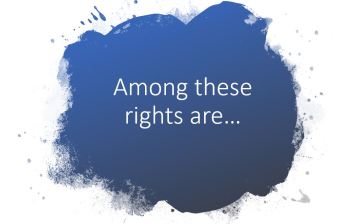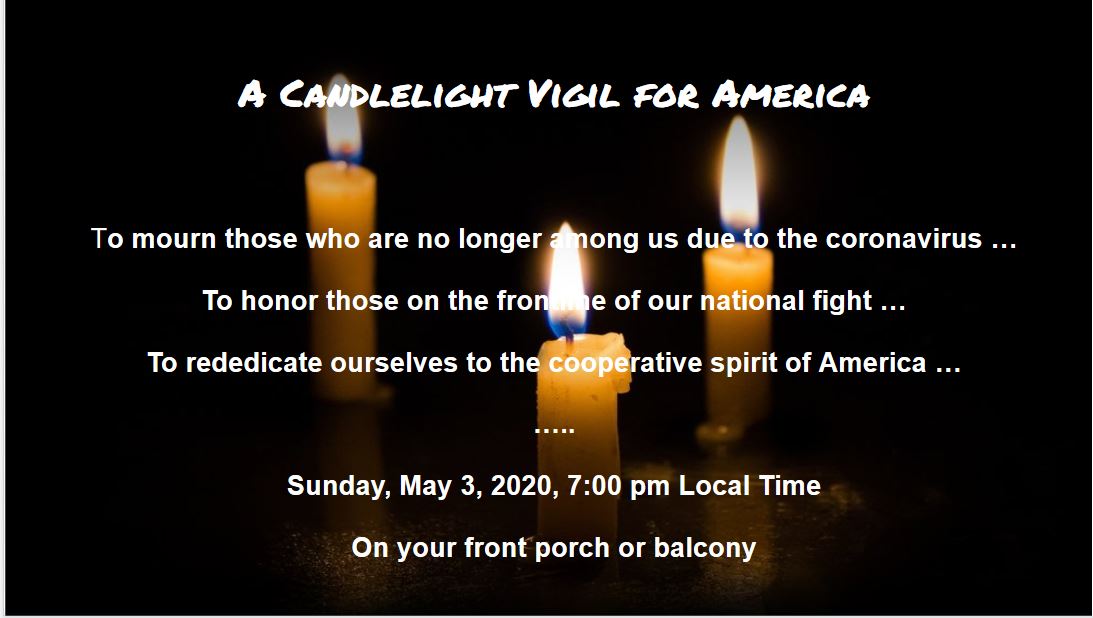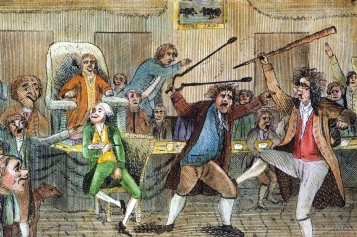
I’m going to step outside the realm of American history and politics for a moment, because I think it might be useful to consider our American Crisis from a different point of view. We’ve been asking ourselves “how can those people (Trump’s supporters) believe him?” and “Why can’t people wake up and see what the problem is?” I think a long-dead Italian revolutionary can help us answer those questions.
The Italian I’m thinking of is Antonio Gramsci, a Marxist theorist and revolutionary, who died on April 27, 1937, after being sentenced to 11 years in prison by Mussolini, whose fascist government outlawed the Communist Party in Italy, of which Gramsci was a leader.
Gramsci’s great idea is cultural hegemony, which, in my opinion, is perilous to neglect. I think it has great explanatory value if applied to the weirdness and strains of contemporary America life. Gramsci developed the idea while in prison, where he filled 30 notebooks with ideas and theories before his death. The collection of Gramsci’s essays is simply and poignantly titled The Prison Notebooks.
I first became interested in Gramsci when I read a short quotation from an essay in his Notebooks.
“The crisis consists precisely in the fact that the old is dying and the new cannot be born; in this interregnum a great variety of morbid symptoms appear.”
Sounds interesting, if a little boring. The version I read had been translated as:
“The crisis consists precisely of this: the old is dying and the new cannot be born; this is a time of monsters.”
I don’t know which translation is more faithful to Gramsci’s Italian, but I greatly prefer the second. I also think it’s a concise summary of where we find ourselves today.
Cultural hegemony explains how ruling classes (the bourgeoisie, the middle and upper classes; capitalists) maintain their power over the great mass of people by obtaining their consent to be ruled, even if the objective conditions – the ability to make a living, rent or buy a house, and put food on the table – of the working class are less than desirable.
Consent is created and maintained through education and the media, which develops and disseminates an approved ideology (an understanding of how things work; capitalism as opposed to socialism; democracy instead of aristocracy; American exceptionalism; neoliberalism) and culture (rugged individualism; “America, Love It or Leave It”; John Wayne movies; Father Knows Best; “As American as apple pie”). This mixture of ideology and culture, through which rulers and their rules are legitimized, is cultural hegemony. People are acculturated into it from the moment of birth; by the time they’re adults, it’s just the way the world works, even if the world stinks and is full of inequality and suffering. The wealthy are virtuous examples of personal initiative; the poor are tongue-clucking examples of personal moral failures.
A similar idea was developed by Edward S. Herman and Noam Chomsky in their 1988 book, Manufacturing Consent: The Political Economy of the Media. The media – newspapers, magazines, television news, the internet, movies – paint an attractive and benign image of America, especially of American actions overseas. If all is well in America, then all is well in the world. Or so it is assumed. America has the responsibility to maintain this world order, which everyone in America agrees is a Good Thing, perhaps ordained by God. The hypnotic power of the media ensures that Americans are indoctrinated with this vision of a benign America capitalism. It’s important to note, though, that manufactured consent isn’t the result of some vast conspiracy; rather, it exists because the media create, and are influenced by, the dominant cultural hegemony. As it happens, this includes a favorable view of the American empire and the interests of capitalists.
Gramsci’s cultural hegemony builds on Marx, who wrote that “the ideas of the ruling class are in every epoch the ruling ideas.” The great value of cultural hegemony to the ruling class is that it allows them to rule with minimal violence (toward white people). People accept, without much thought, the legitimacy of government rules and the precepts taught in schools and churches; if the ideology and culture are legitimate, so the reasoning goes, then a predatory economic system like capitalism (which is part of America’s ideology) is also considered legitimate, even if it drives people into debt peonage.
The cultural hegemony of capitalism includes the precept that individuals are responsible for their own behavior, their own success or failure – and economic failure is looked upon as an individual moral failure. In Puritan terms, if you fail economically, then you’re not one of the Elect, one of the saved, and you are condemned to misery in this life and hell in the next. Nothing can be done about it; that’s just the way things are. The existence of systemic injustices is rejected as an insult to the superior personal initiative of the pious keepers of wealth and culture.
This is obviously absurd and unsustainable, yet it has persisted, even dominated, American life since the thirteen original colonies banded together to fight off the imperialism of their mother country. Gramsci, recognizing the absurdity of a forever stable cultural hegemony, also developed the idea of the “organic crisis,” which is a crisis so great that it touches on every aspect of the cultural hegemony developed by the ruling class: capitalism, politics, ideology, culture, and the environment. This is a period “when things fall apart,” a time of suffering and authoritarianism. A time, perhaps, of a pandemic. Or climate change.
Whatever the proximate cause, the crisis is due to the natural or organic operation of the capitalist system: the rapacious accumulation of capital, widening inequality, corruption or ineptitude which causes a loss of confidence in the government, and various system failures (stock market crashes, inflation, stagflation), all of which threaten the stability of bourgeoisie rule. Violence increases, and people are out of work, homeless, and hungry. The old is dying, but the new cannot be born … Suffering becomes common … Revolution is in the air … It’s a time of monsters …The monster of fascism rises … Or workers rebel and eliminate the ruling class.
Why do I think this is important? Because it describes much of what is happening in the U.S. right now. Our empire is collapsing. We’re losing allies. Our economic system generates massive inequality. As Umair Haque recently noted, half of America is poor. Angry, mistrustful voters elected a populist with authoritarian tendencies to the highest office in the land.
Crisis is upon us, spurred by the excess of capitalism. The horse has thrown us to the ground, but it still gallops exotically around the globe in search of profits.
Yet, despite rising inequality, most Americans deny being poor, because in American culture to be poor is to be a moral failure. And few people question the wisdom of an economic system that creates so much human misery and destroys the environment. Despite Bernie Sanders’ campaign, most Americans have a negative view of socialism, even if they like individual socialist policies. The power of cultural hegemony prevents us from acknowledging our misery.
Now we’re also dealing with a pandemic that has killed over 50,000 Americans and abruptly brought capitalism to its knees. People don’t have money for food or rent. Discontent is rising. Strikes are contemplated. But reformism, not revolution, is the preferred response.
In spite of his demonstrated incompetence, Trump’s cultish supporters haven’t wavered in their support of him, although he may be losing independent and women voters. Even “ordinary” Republicans and Democrats, who are suffering alongside Trump’s supporters, refuse to abandon the “American Way.” The cultural weight of a clichés like “America, Love It or Leave It” or “Make America Great Again” is so important to the American psyche that people can’t let them go, even though the weight of their beliefs is pulling them down into dark waters.
Hegemonic capitalism has created a crisis for ordinary Americans, while wealth continues to flow to those at the top. The middle class, the bourgeoisie, is being destroyed. Yet, the cynical manipulation of the cultural values of the working class by a populist president still protects the ruling class, and the blanket of cultural hegemony has become the funeral pall for the casket of the middle class.
What can we do?
First, we must become aware of our own ideology and cultural values and consciously reject those which dehumanize people or destroy the environment. This “struggle against ourselves” is necessary to ensure we aren’t acting without thinking (which is what ideology is designed to encourage) in ways that strengthen the prevailing cultural hegemony.
Second, we should identify one or more stress points in the current environment that are ripe for change. It might be the concentration camps scattered around the country, a particularly abusive company (a local meat packing company which fails to provide PPE to its employees; a large landlord threatening to evict the unemployed; a utility company turning off people’s water supply during a pandemic). Whatever the injustice, combine with others not to reform it, but to change its mode of operation – and perhaps its ownership – so that abuses are eliminated. This will require time and patience, and failures may occur, but we must engage in the battles if we are to win the war.
Third, we must explain to others why we’re in a time of great crisis and what systemic changes must occur to resolve it. We should aim to provide not just a critique, but a vision of a better world. This activity is movement building, which is slow, frustrating work, but absolutely necessary if we are to be prepared to act decisively when a crisis reaches a breaking point – such as a national election during a time of a pandemic and widespread economic distress.
Fourth, and most urgent, we must do whatever we can to ensure Trump and McConnell are not reelected. They are like blood clots in our brains, threatening to do permanent, perhaps fatal, damage to our republic. Donate money, volunteer to work (remotely) in a phone or direct messaging bank.
Gramsci’s cultural hegemony and organic crisis accurately describe contemporary America’s political, economic, and social crises. Monsters are roaming through our streets and airwaves, and we do not yet know if a Beowulf will arise from among us to slay them.
***
Additional Reading
Adamson, Walter L. 2014 (paperback). Hegemony and Revolution: A Study of Antonio Gramsci’s Political and Cultural Theory. Brattleboro, Vermont: Echo Point Books and Media. A good exploration of the evolution of Gramsci’s thought.
Gramsci, Antonio. 2011. Prison Notebooks, Volumes I-III. New York: Columbia University Press. These are the source documents for Gramsci ideas. Unfortunately, the boxed set is very expensive ($80-plus), but perhaps you can find them at a library (interlibrary loan).
____. 2018 (eBook). Selections from the Prison Notebooks. Amazon Services LLC. Yes, I know, Amazon. But this is an affordable ($4.99) version of 637 pages of the Prison Notebooks.
____. 2015 (paperback). An Introduction to Antonio Gramsci: His Life, Thought and Legacy. Bloomsbury Academic. A good biography of Gramsci, plus the development of his ideas.
Le Blanc, Paul. 2016 (paperback). From Marx to Gramsci. Chicago: Haymarket Books. A collection of essays that provide an historical overview of Marxist thought.
 I’ve read a few comments on posts saying, in effect, that those protesting against Safer at Home restrictions should give up their right to health care should they become infected. After all, by ignoring physical distancing, they are endangering others.
I’ve read a few comments on posts saying, in effect, that those protesting against Safer at Home restrictions should give up their right to health care should they become infected. After all, by ignoring physical distancing, they are endangering others.
 This is a photograph, taken by Michael Chow of The Arizona Republic newspaper, of an ICU nurse named Lauren Leander. Ms. Leander held a silent counter-protest at an Arizona rally where Trump supporters demanded their governor “open the state for business.”
This is a photograph, taken by Michael Chow of The Arizona Republic newspaper, of an ICU nurse named Lauren Leander. Ms. Leander held a silent counter-protest at an Arizona rally where Trump supporters demanded their governor “open the state for business.” This was written in response to a Facebook post that asked the question, “What are you doing to survive spiritually in a time of pandemic and other horrors? It feels like we’re in a physical and a spiritual war.”
This was written in response to a Facebook post that asked the question, “What are you doing to survive spiritually in a time of pandemic and other horrors? It feels like we’re in a physical and a spiritual war.”
 Hi, there! I’m the Hermit, back to report on Week 12 of my withdrawal from society.
Hi, there! I’m the Hermit, back to report on Week 12 of my withdrawal from society.